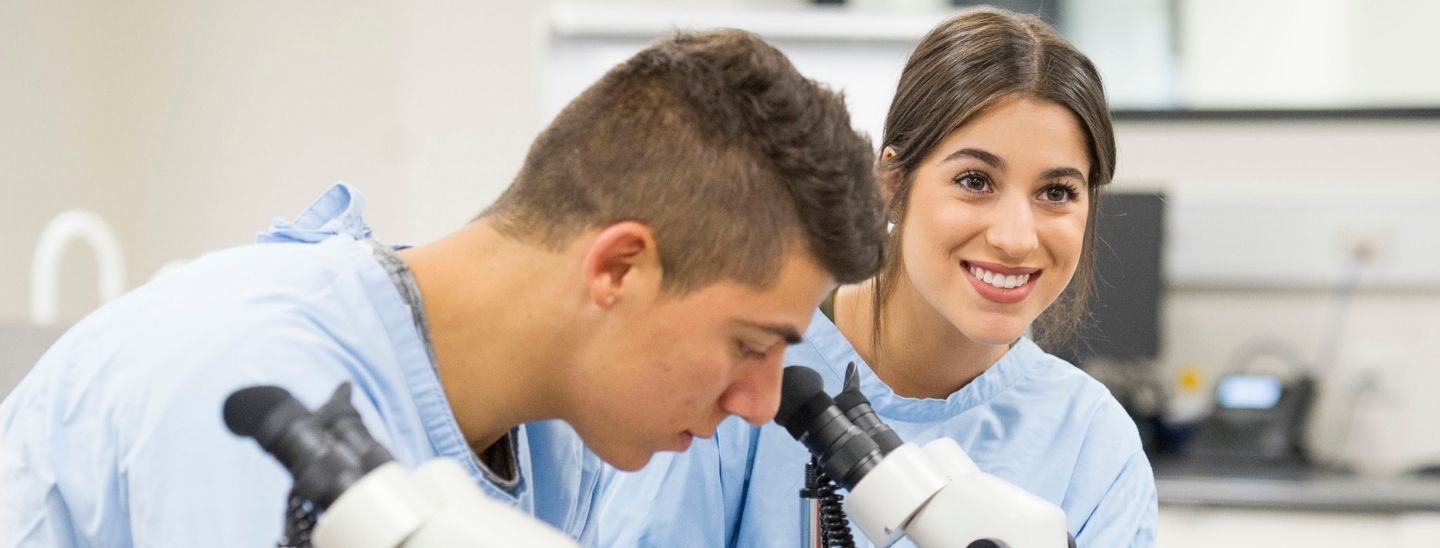What you’ll be studying
You’ll need to complete four subjects during your program.

4 months
February, June, October
Melbourne On-campus
Not available to domestic students
A$19,520
CRICOS 109164H
Students who complete their Undergraduate Certificate of Life Science will be able to pathway into the second trimester of the Diploma of Bioscience at La Trobe College Australia to complete another four core modules over two trimesters. The Diploma of Bioscience is a pathway program that leads to second year entry of the listed Bachelor programmes at La Trobe University – students will complete an additional two years in the bachelor’s degree after finishing the diploma.
Diploma of Bioscience, then:
* Progression requirements apply – please refer to diploma course plans for more details.
You’ll need to complete four subjects during your program.
Chemistry Foundations chemistry is a foundation module designed for students who have no or little previous experience or study in chemistry. The aim of the module is to instill concepts, knowledge and skills that will enable these students to apply chemical principles and practice during their university degree and future employment. The content of the one trimester module covers topics common to senior high school chemistry and also prepares students to advance to second trimester chemistry.
Assessment: Workshop tests and online quizzes (25%), laboratory reports (25%), exam (50%)
Living organisms, with their many intricate and intriguing processes, are composed of lifeless molecules. This subject takes a look at how those molecules are organised into the smallest unit of life, cells, across a range of organisms. The subject also covers how those cells capture light energy, break down molecules to release energy, synthesise new molecules, communicate with other cells, and how the instructions to perform those functions are stored and passed on to the next generation.
Assessment: Limited choice online quizzes (10%), worksheet (30%), oral presentation (20%), exam (40%)
This module provides an introduction to applied statistics and strengthens basic numeracy skills. It introduces students to the basic applied statistical methods used in the biological sciences, medical sciences, agricultural sciences, nutrition, and health sciences. The three main areas of study are descriptive statistics, probability, and statistical inference and the use of a statistical computing package is an integral part of this module. The strengths and limitations of statistical models to enable informed thinking about sustainability are explored. This module is a possible pre-requisite for the second-year modules in statistics.
Assessment: Tests (30%), quizzes (10%), exam (60%)
In this subject students will be introduced to the anatomical organisation of the body and the basics of cell structure and function. The fundamentals of the nervous and endocrine systems will then be explored in the context of mechanisms of physiological control. This information will provide the foundation for the study of the major organ systems of the body, which include the respiratory, cardiovascular, renal, digestive, reproductive systems and metabolism. Underpinning these studies will be the concept of homeostasis and how it is maintained by integration of organ system functions. In addition, students are required to engage in guided, independent learning throughout the semester to extend their level of knowledge in the topic areas described above.
Assessment: Workshop quizzes online (10%), online tests (50%), exam (40%)
Would you like to know more? Speak to our team today!